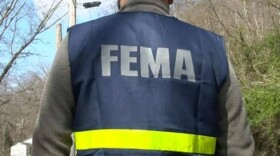AILSA CHANG, HOST:
Bitcoin and other cryptocurrencies surged last year, with bitcoin trading above $100,000 for the first time ever last month. So what's in store for 2025? Well, many experts believe we could see another game-changing year. We're joined now by NPR's senior business editor, Rafael Nam, to discuss three things to watch this year. Hey, Rafael.
RAFAEL NAM, BYLINE: Hey, Ailsa.
CHANG: OK, so what are markets expecting this year?
NAM: For now, even more gains. A lot of people in crypto markets believe these are the best times they've ever seen, and a big reason for this optimism is something that happened last year - the approval of investment funds that track the price of bitcoin. It was a fundamental change in how you can invest in bitcoin. It means you don't need to shell out about $100,000 to invest in a single bitcoin. You can now do it through these funds, which are popular with mom-and-pop investors. And these funds have attracted big money - over $35 billion last year.
CHANG: Wow.
NAM: And analysts believe we could see more money coming in this year. The second reason that people are so optimistic is because of the return of Donald Trump to the White House. During the campaign, Trump made a big promise to crypto investors to make the U.S. the crypto capital of the planet.
CHANG: OK. How could he do that?
NAM: Well, by making regulations a lot more friendly to the crypto industry. The Biden administration was very skeptical of cryptocurrencies. They are incredibly volatile, after all, and they are used by all kinds of bad actors like scammers. But there are also many investors, from regular people to big institutions, who are now into crypto. That includes the Trump family, by the way. He and two of his sons are involved in a crypto venture. And Trump is promising a completely new approach. Under Biden, the market cap (ph) for Wall Street went after crypto players pretty aggressively. But Trump has picked Paul Atkins as the next head of the Securities and Exchange Commission. He's a financial consultant who's expected to be pretty friendly to the industry.
Trump has also named a crypto czar - the first time the U.S. will have such a role. He's a prominent investor called David Sacks, who could play a key role in shaping friendly crypto policies. Then there's a third reason why crypto investors are so hopeful this year, because Trump is suggesting the U.S. itself should start investing in bitcoin.
CHANG: Wait. How would the U.S. do that?
NAM: Well, the idea is kind of similar to how the U.S. buys oil and sets it aside in a special stash, except this one will have bitcoin. The U.S. has about $19 billion worth of bitcoin that the government has seized from various bad actors, and Trump wants to use that to start a bitcoin stockpile. People who like the idea say bitcoin will continue to gain, and that's money the U.S. can use to do things like pay down its large debt.
CHANG: Well, what about people who don't like that idea? What are they saying?
NAM: Well, honestly, a lot of critics find the idea terrifying. First, there are questions about how the U.S. can actually do this. Also, there's a strategic reason why the U.S. has oil reserves - to help the country in case of energy emergencies. But many critics believe bitcoin has no real purpose except as a speculative investment, and the U.S. could lose a lot of money by investing in bitcoin. That's not how crypto investors see it, though. They think if Trump delivers on his promise it could give another big boost to cryptocurrencies.
CHANG: That is NPR's Rafael Nam. Thank you, Rafael.
NAM: Thank you, Ailsa. Transcript provided by NPR, Copyright NPR.
NPR transcripts are created on a rush deadline by an NPR contractor. This text may not be in its final form and may be updated or revised in the future. Accuracy and availability may vary. The authoritative record of NPR’s programming is the audio record.







